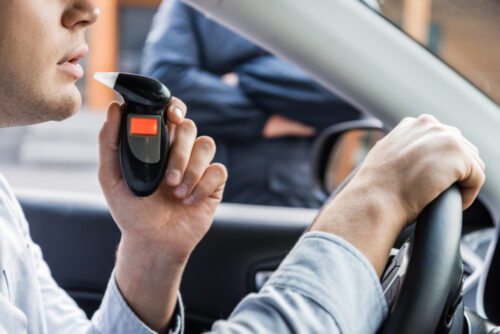
If you drive past a sign that reads something along the lines of, “Prepare to stop. Sobriety checkpoint ahead,” you may not know what to expect. Well, a sobriety checkpoint is a designated location in which law enforcement officers are allowed to screen drivers for indications of driving under the influence (DUI). These checkpoints typically pop up in bustling areas, and mainly around holidays where drinking is prominently partaken in. Continue reading to learn what to expect when passing through a sobriety checkpoint and how an experienced Morristown DUI defense lawyer at Graves Andrews, LLC can help you confirm whether this was a lawful setup.
What can I expect when going through a sobriety checkpoint?
So long as you have not been partaking in drugs or alcohol before getting behind the wheel, you should have nothing to worry about when going through a sobriety checkpoint. Nonetheless, it is still useful to know what the expect. Without further ado, the standard procedures are as follows:
- You may expect to follow traffic signs directing you to a well-lit sobriety checkpoint location.
- You may expect to provide your driver’s license, car registration, and proof of car insurance to a law enforcement officer.
- You may expect to answer questions asked by a law enforcement officer, such as whether you have partaken in drugs or alcohol in the recent past.
- You may expect to participate in a field sobriety test or a breathalyzer test, depending on your responses to the previous questions.
What can I know about an unlawful sobriety checkpoint?
You must understand that if a law enforcement officer suspects that you are impaired, then you may be arrested for a DUI offense. With this comes major consequences such as jail time, fines, driver’s license revocation, community service, rehabilitative programs, and more. This is why you must fiercely fight back against any false accusation of being impaired behind the wheel. That is, you may argue that you were stopped at an unlawful sobriety checkpoint. This may be a strong argument if any of the following circumstances are true:
- There was no record keeping of the checkpoint operation.
- There was no data collection on the checkpoint’s effectiveness.
- There was no advanced public notice that you were approaching a checkpoint location.
- There was no high-ranking law enforcement official present at the checkpoint location.
- You did not have your legal rights read to you upon being arrested for suspicion of DUI.
- You believe that the location was majorly unsafe.
- You believe that the procedures were majorly intrusive.
- You believe that the location was targeting specific individuals or communities, or that the procedures were discriminatory.
This is all to say that, before you enter your DUI case proceedings, you must consult a skilled Morristown criminal defense lawyer. So please reach out to Graves Andrews, LLC today.